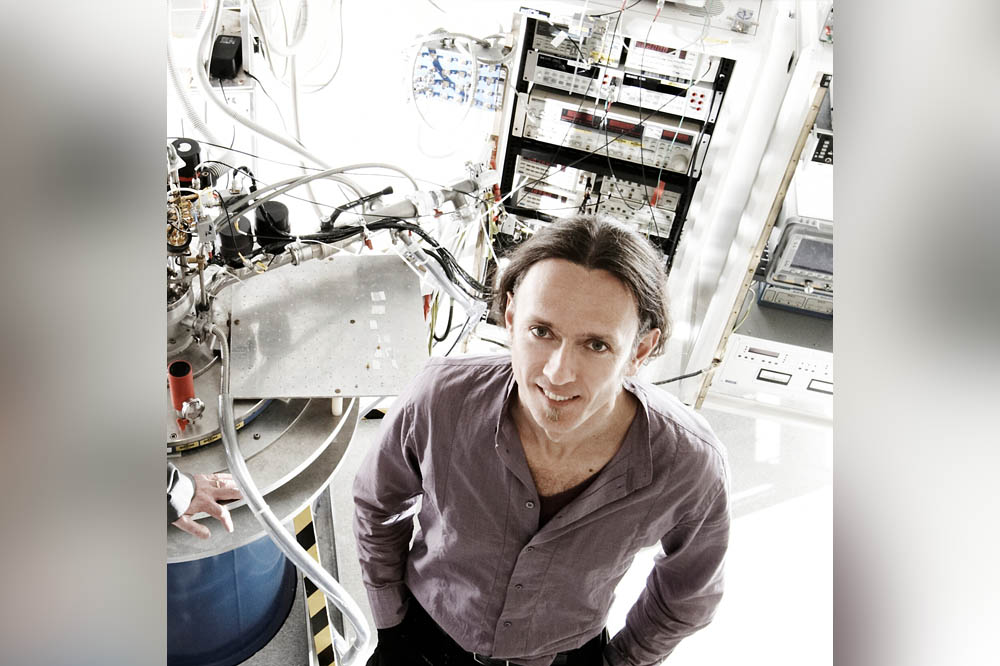
In its recently released Quantum Technology Roadmap, CSIRO revealed the quantum technology industry could be worth over $4bn in revenue for Australia by 2040 and create 16,000 new jobs.
Indeed, quantum technologies, such as computing, sensing and communication, have immensely powerful applications across multiple industries, including medicine, defence, financial services and natural resources.
Recognising the unique impact that this technology will have on Australia’s economy once it truly ramps up, UNSW Sydney has introduced the world’s first undergraduate degree in quantum engineering.
The Bachelor of Quantum Engineering (Honours) will train students in advanced electronics and telecommunication engineering, specialising in how to design and control complex quantum systems.
The degree will cover nanoelectronics, microwave engineering and quantum technologies for advanced sensors, secure communications and computing.
‘The key to a world-class quantum workforce’
UNSW Scientia Professor Andrea Morello – a world-leading expert in quantum engineering – pioneered teaching quantum technologies to undergraduate students and has been the driving force behind the new degree.
As he embarks on the next phase of this exciting endeavour, he’ll be joined on the teaching staff by experts including Professor Rob Malaney (quantum communications), Dr Jarryd Pla (advanced quantum devices) and Dr Hendra Nurdin (quantum control).
The UNSW faculty also includes ARC Laureate Professor Andrew Dzurak – a world leader in silicon-based quantum computing.
Professor Morello says an undergraduate offering in quantum technology will be key to building “a world-class quantum workforce” in Australia.
“I like to think of quantum engineering as the electronics and computer engineering of the 21st century,” Professor Morello told The Educator.
“Of course, electronics has always been ‘quantum’ at some deep level, but until recently that could be sealed up in a ‘black box’ that very few people ever needed to open”.
What’s special now, says Professor Morello, is that we have new tools to look inside that box, and figure out ways to use what’s in there without boxing it up.
“The microelectronics industry – worth over a trillion dollar worldwide – will never be able to close the box again,” he said.
“Telecommunications will change dramatically once quantum communication protocols become widespread. Quantum sensing is already with us, empowering mining, defence, and medical devices”.
Professor Morello said he greatly looks forward to seeing quantum engineering providing unexpected solutions to grand challenges like climate change, energy supplies and food sustainability.
“There is a lot to discover in chemistry, catalysis and materials design, all of which have deep quantum roots,” he said.
“I also expect there will be revolutionary medical and pharmaceutical advanced enabled by quantum technologies”.
‘Full impact won’t be seen for another decade’
In October last year, Google said it had cracked “quantum supremacy”, the ability to allow new kinds of computers to do calculations at speeds that are inconceivable with today’s technology.
Professor Morello said his expectation is that quantum computing will grow by “leaps and bounds, with plenty of quiet periods in between”.
“We won’t see the full impact of it for at least another decade, probably more,” he said.
“The interest and sustained investment from big tech is certainly promising and will greatly accelerate the progress”.
Further developments in quantum education are also underway between UNSW and members of the Sydney Quantum Academy (SQA), which Professor Morello called “a truly visionary initiative”.
“It grew out of the realization that, although none of the individual Sydney-based universities covers every possible aspect of quantum science and technology, by joining forces we actually do achieve world-leading, comprehensive coverage of all there is to learn and all there is to research in this field,” he said.
“UNSW has traditionally focussed on experimental quantum science and engineering, while other universities have complementary strengths in quantum theory and quantum computer science”.
Professor Morello said that through the SQA, students will be given the opportunity to sample the best of everything the Sydney basin – the “quantum harbour” – has to offer.
Quantum tech set to create new markets
CSIRO’s Chief Scientist, Dr Cathy Foley, said quantum technology is set to transform electronics, communications, computation, sensing and other fields.
“It will create new markets, new applications and new jobs in Australia,” Dr Foley said.
“Australian science has been breaking new ground in quantum technologies for almost three decades”.
To maintain this position of leadership and ensure Australia captures its share of this high tech, high value opportunity, Dr Foley said it’s crucial that education providers expand their quantum offerings.
“We need to build a quantum technology workforce in Australia that can translate our world-leading research into solutions to real-world challenges,” she said.
“So, I commend UNSW for creating the world’s first quantum qualification open to undergraduates”.
UNSW’s acting dean of Engineering Professor Stephen Foster said students studying quantum engineering at UNSW will benefit from learning from some of the very best quantum engineers and scientists in the world.
“UNSW is home to several leaders in quantum research and students who study quantum engineering with us will learn from many of the global forerunners in this field,” Professor Foster said.
The first undergraduate intake will be Term 3, 2020. Interested students can find out more on the UNSW Engineering website UNSW Engineering website.


